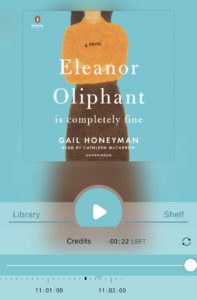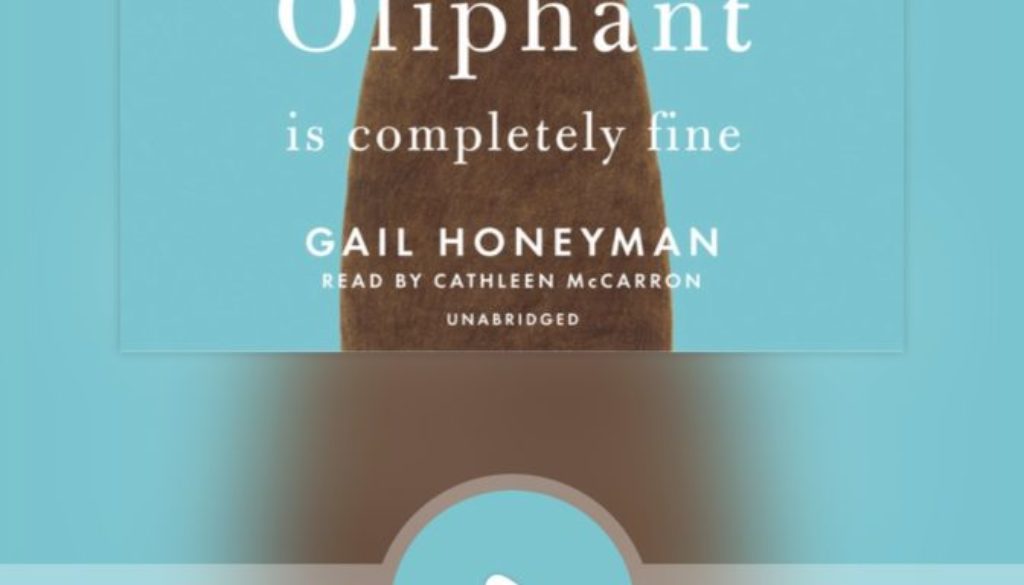!!! Spoiler Alert: This post reviews Gail Honeyman’s novel Eleanor Oliphant is completely fine and contains spoilers to the book! Read at your own risk!!!

I drive a total of two hours each day to go to work and come back home. What better way to spend the time than to alternate between head-banging to music and listening to an audiobook?
Yesterday, I finished my first audiobook from Libby—an app that lets you borrow audiobooks as long as you have a valid library card with a participating library. I had selected Gail Honeyman’s Eleanor Oliphant is completely fine for a few reasons: 1) vain as it maybe, I was drawn to the main character’s name, 2) I appreciate biting sarcasm in a title, 3) I, too, am completely fine.
During the part where Eleanor talked about how people expect you to answer “How are you?” with: “I’m fine” even when you’re crippled by loneliness—I was nodding my head, saying “Yup, yup, yup” to myself, fully grasping what she meant. When I migrated to US ten years ago, it took me months to realize that every time someone asked me how I was doing, the proper reaction was to say: “I’m good. And you?”, hear the brief reply, and move on. Not share anecdotes, or vent, or dawdle on possible topics of common interest.
But alas, like Eleanor, we learn to lie to everyone, including ourselves—especially ourselves—on our state of being fine. Having wrestled with my share of mental health issues more than half my life, I felt for Eleanor. Yes, her voice was amazingly fluent, brilliantly innocent, and annoyingly pompous at times. But whenever she was honest and vulnerable, whenever the alcohol rinsed off her delusions of grandeur, whenever her painful past came back to haunt her and she had to deal with all her thoughts and issues alone—I had to hold back tears because a runny-mascara raccoon look wouldn’t go well with my business casual, and I didn’t want to be judged a hot mess on my first week of work.
I had to come to my job and act like I didn’t need to sob woefully from relating so much to a fictional character. Like Eleanor, I had to be completely fine.
Not only did the novel explore the lifelong impact of physical and emotional abuse on mental health, it also touched on hope… on finding a support system, sometimes in a counselor, sometimes, in the least likely places—a plant, an old man who fell in the street, a lumbering unshaven IT guy (love the meet-cute; I am a sucker for nerdy, lumbering men), IT guy’s mother, and a cat. There are some people out there who could see through the walls we’ve built and care enough to say: “Christ! You are the opposite of fine.” They put aside the crap in their lives to probe further and listen to our crap… Some even lend a hand where they can.
So glad to have finished this book so quickly! Definitely made me look forward to an enjoyably interactive commute. Several times, I shouted at the narrator (Cathleen McCarron): Raymond! Raymond! Dammit.” Or I would loudly utter “Awww” for moments where my heart was breaking along with Eleanor’s.
Whether you’re being sarcastic or not about being completely fine, this book could tickle you, tug at your heart strings, and best of all, make you appreciate a person’s beauty and resilience underneath their brokenness.
